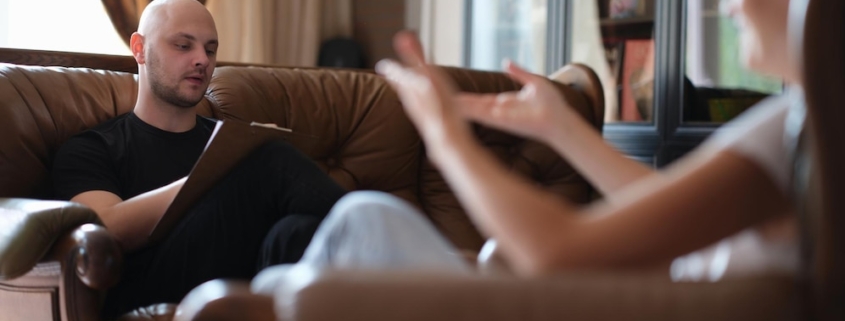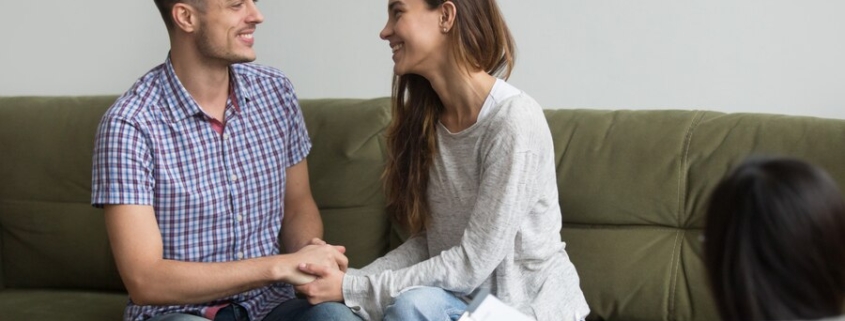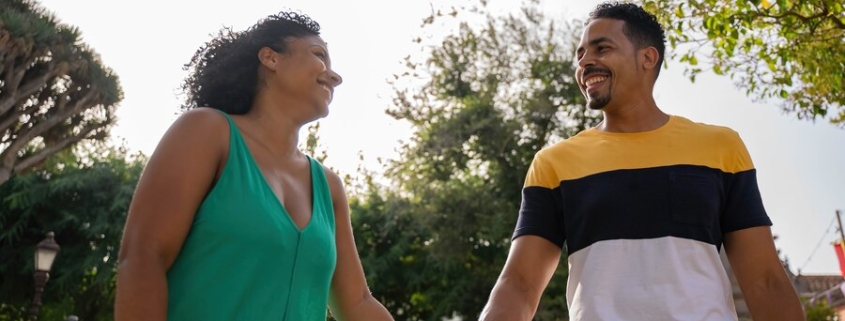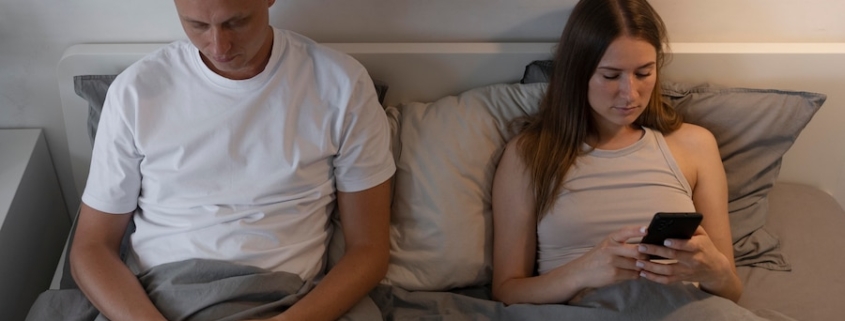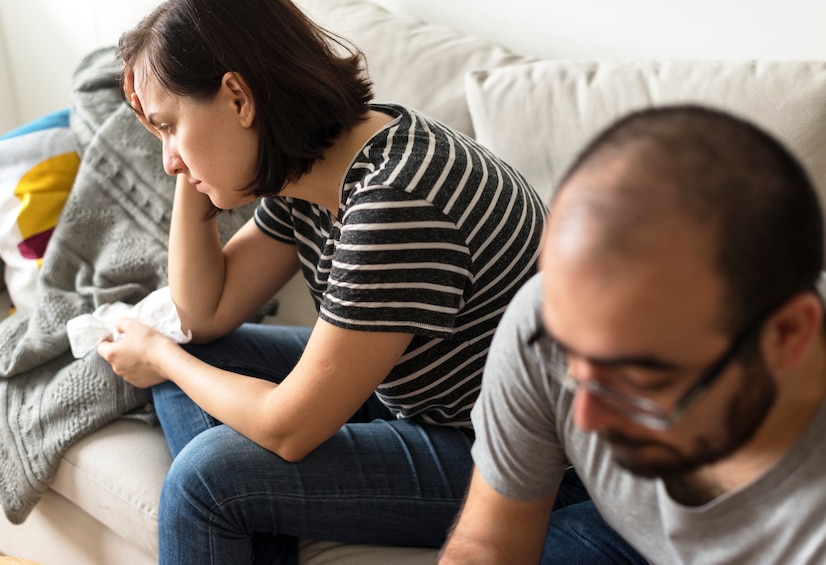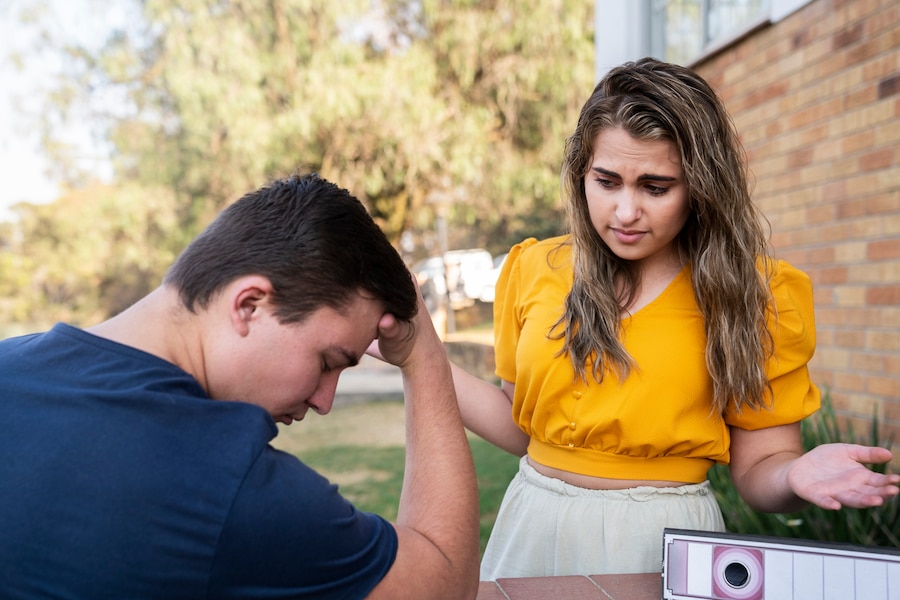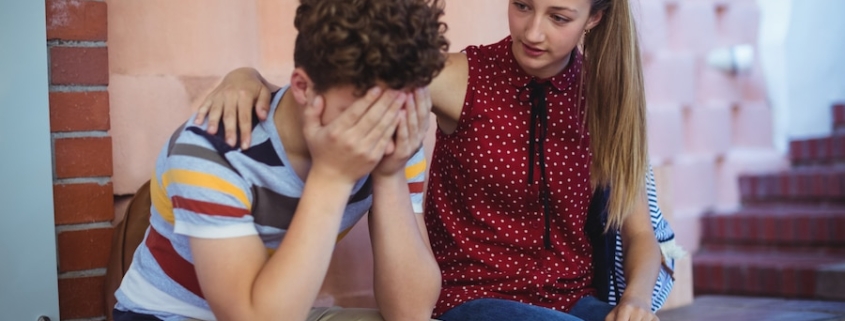Addiction is an insidious condition that can infiltrate and damage every aspect of life, from personal health to relationships. For couples, the stakes are even higher, as the bond they share can either become a source of support or a breeding ground for mutual destruction. In this article, we explore the journey of a couple who refused to let addiction define their lives. Instead, they chose to take a brave step towards recovery together, proving that love and commitment can indeed conquer the darkest of times.
Couples Rehab Services
Our Journey into Addiction
How It All Began
Our journey into addiction didn’t start with a dramatic event or a single bad decision; it was a gradual process, almost imperceptible at first. Like many couples, we began our relationship full of hope and dreams for the future. We were young, in love, and eager to build a life together. However, stressors such as demanding jobs, financial pressures, and personal insecurities slowly started to take a toll on our emotional well-being.
It all started innocently enough. We would have a drink or two to unwind after a long day at work. What began as a casual habit soon escalated into a coping mechanism. Alcohol became our crutch, our way to escape the growing pressures we faced. From there, it wasn’t long before we experimented with other substances, seeking that elusive sense of relief and euphoria that seemed just out of reach.
The Downward Spiral
As our substance use progressed, our lives began to unravel in ways we could have never anticipated. What once seemed like harmless fun turned into a dependency that controlled our every thought and action. We started to isolate ourselves from friends and family, ashamed of our growing addiction. The things that once brought us joy and fulfillment became overshadowed by the constant need to feed our habits.
Our relationship, which had once been a source of strength and support, began to deteriorate. Arguments became frequent, trust eroded, and we found ourselves trapped in a cycle of blame and resentment. Financial troubles worsened as we prioritized our addiction over responsibilities, and we both faced the harsh consequences of our choices at work and in our personal lives.
Hitting Rock Bottom
Rock bottom is a different place for everyone, but for us, it was the realization that we had lost control over our lives and our future. There were moments of profound despair and hopelessness, times when it felt like we were drowning with no way out. We faced health issues, legal problems, and the very real possibility of losing everything we had worked so hard to build.
The turning point came when we looked at each other and realized that if we continued down this path, we would lose not only our relationship but also ourselves. It was a moment of stark clarity amidst the chaos, a moment when we knew we had to make a change or risk losing everything we held dear.
Our journey into addiction was a painful and challenging experience, but it was also the catalyst for seeking the help we desperately needed. It was the beginning of a new chapter, one where we would learn to rebuild our lives and our relationship, stronger than ever before.
Finding Hope in Couples Rehab
As we stood at the precipice of our worst fears, the decision to seek help was both terrifying and liberating. The thought of entering couples rehab felt like a double-edged sword—on one hand, it represented a lifeline; on the other, it meant confronting the depths of our shared addiction. But amidst the chaos, a flicker of hope guided us. That hope was the belief that addiction didn’t define us and that together, we could reclaim our lives.
The Decision to Seek Help
Making the decision to enter rehab was not instantaneous. It was a culmination of sleepless nights, tear-filled conversations, and moments where we saw glimpses of who we used to be before addiction took over. We knew we had to make a choice: continue down a path of destruction or fight for the life and love we once cherished. The turning point came when we realized that our relationship, though battered, still held a reservoir of untapped strength. We decided that if we were going to survive, we would do so together.
Choosing the Right Program
Selecting the right rehab program was crucial. We needed a place that understood the unique dynamics of couples struggling with addiction. After extensive research and consultations, we found a rehab center that specialized in couples therapy. This program offered a holistic approach that addressed both individual and relational aspects of addiction. It provided a safe space where we could heal individually and as a couple, with a focus on communication, trust, and mutual support. The comprehensive treatment plan included medical detox, individual counseling, couples therapy, and aftercare planning, ensuring we had the tools we needed for sustained recovery.
First Steps to Recovery
Walking into the rehab center for the first time was daunting. We were greeted by compassionate staff who immediately made us feel understood and supported. The initial phase of detox was challenging, but knowing we were going through it together provided an unparalleled sense of solidarity. We attended individual sessions where we confronted our personal demons and couples sessions where we learned to rebuild our fractured relationship.
In these sessions, we were guided through exercises that helped us communicate more effectively and rebuild trust. We learned to identify triggers and develop coping mechanisms that didn’t rely on substance use. The rehab center became a sanctuary where we could face our vulnerabilities without judgment. Each day brought new insights and small victories, reinforcing our commitment to recovery.
The journey was not without its struggles, but with each passing day, we felt a renewed sense of hope. We began to see glimpses of the life we once envisioned for ourselves, a life free from the shackles of addiction. Couples rehab gave us the foundation we needed to start building a new life together, one filled with love, respect, and resilience.
Finding hope in couples rehab was the first step on our path to recovery. It was the beacon that guided us out of the darkness and towards a future where addiction no longer defined us. Together, we found the strength to reclaim our lives and our love, proving that even in the face of adversity, hope and healing are possible.

Building a New Life Together
Emerging from the shadows of addiction was only the beginning of our journey. The real challenge lay in rebuilding our lives and our relationship from the ground up. Couples rehab provided us with the tools and insights we needed, but it was up to us to put them into practice. Here’s how we began to build a new life together, one day at a time.
Rebuilding Trust and Communication
Trust had been severely eroded by our years of addiction. Lies, deceit, and broken promises had created a chasm between us that needed to be bridged. In couples rehab, we learned that rebuilding trust is a gradual process that requires patience and consistency.
We began by setting small, achievable goals. Transparency became our new mantra—no more secrets, no more hidden stashes, no more deceitful behaviors. We started to share our thoughts and feelings honestly, even when it was uncomfortable. Open communication reestablished a sense of safety and reliability in our relationship.
We also learned to listen—truly listen—to each other. Active listening exercises helped us understand not just the words being spoken, but the emotions and intentions behind them. Over time, these practices helped us rebuild our trust and foster a deeper emotional connection.
Creating Healthy Habits
Addiction had wreaked havoc on our bodies and minds. To sustain our recovery, we needed to establish healthy habits that would replace our old, destructive routines. This involved more than just avoiding substances; it required a holistic approach to our well-being.
We started by focusing on our physical health. Regular exercise became a cornerstone of our routine, helping us to manage stress and improve our overall mood. We also committed to a balanced diet, understanding that nutrition plays a crucial role in mental and physical health.
Mindfulness and meditation became important tools in our recovery toolkit. These practices helped us stay present, manage cravings, and cope with the inevitable stresses of daily life. We also made time for hobbies and activities that brought us joy and satisfaction, which helped to fill the void left by substance use.
Long-term Strategies for Staying Clean
Staying clean is a lifelong commitment that requires ongoing effort and vigilance. In couples rehab, we developed long-term strategies to help us maintain our sobriety and continue growing together.
One of the most important strategies was creating a strong support network. We surrounded ourselves with people who understood our journey and supported our recovery. This included attending regular support group meetings, where we could share our experiences and gain insights from others who had faced similar challenges.
We also established boundaries to protect our sobriety. This meant avoiding places, people, and situations that could trigger a relapse. Instead, we focused on building a positive, supportive environment that nurtured our recovery.
Setting and achieving goals became another key aspect of our long-term strategy. We set both individual and joint goals, which gave us a sense of purpose and direction. Celebrating our achievements, no matter how small, reinforced our commitment to staying clean and motivated us to keep moving forward.
Finally, we embraced the concept of continuous learning. Recovery is not a linear process, and we knew there would be setbacks and challenges along the way. By remaining open to new ideas, therapies, and strategies, we were able to adapt and grow as individuals and as a couple.
Addiction Didn’t Define Us
Our journey through addiction and recovery has been a testament to the resilience of the human spirit and the strength found in love and partnership. Addiction did not define us; instead, it became an integral part of our story, highlighting our capacity for growth, change, and unwavering support for one another.
Couples rehab was not just a lifeline; it was a transformative experience that redefined our relationship and our individual selves. Through the structured support, expert guidance, and a community of understanding peers, we were able to confront our deepest fears and vulnerabilities. The decision to seek help together, rather than apart, made all the difference. It allowed us to rebuild not only our individual lives but also the foundation of our relationship, grounded in trust, communication, and mutual respect.
Rehabilitation was only the beginning. The real work began as we emerged from the program and started to build a new life together. It required patience, dedication, and a commitment to creating and maintaining healthy habits. We learned to celebrate the small victories and navigate the inevitable setbacks with grace and determination. Our journey has been far from easy, but it has been immensely rewarding.
Today, we continue to employ the long-term strategies we learned in rehab to stay clean and support each other. We practice open communication, set boundaries, and prioritize our mental and physical well-being. We have also made it a mission to give back, sharing our story to inspire and support other couples facing similar challenges.
Addiction tried to tear us apart, but our love and commitment to one another proved stronger. We hope our story serves as a beacon of hope for couples who are struggling. Recovery is possible, and couples rehab can be a powerful catalyst for change. By facing addiction together, we not only saved our lives but also forged a bond that is more resilient and profound than we ever imagined. In the end, addiction didn’t define us; our recovery did. And for that, we are eternally grateful.

FAQs
1. What is Couples Rehab, and how does it differ from traditional rehab programs?
- Couples Rehab is a specialized program that focuses on treating addiction in both partners simultaneously. Unlike traditional rehab programs that may separate couples during treatment, Couples Rehab encourages partners to support each other’s recovery journey.
2. How can Couples Rehab benefit couples struggling with addiction?
- Couples Rehab offers a unique opportunity for couples to address their addiction issues together, strengthening their bond and improving their chances of long-term sobriety. By participating in therapy and counseling sessions as a couple, partners can learn healthier ways of communication and support each other’s recovery.
3. What types of addiction are treated at Couples Rehab?
- Couples Rehab offers treatment for various types of addiction, including alcoholism, drug addiction, prescription medication abuse, and co-occurring disorders. The program is tailored to meet the specific needs of each couple, addressing their unique challenges and triggers.
4. How does Couples Rehab help couples rebuild trust and intimacy?
- Couples Rehab provides a safe and supportive environment for couples to address underlying issues that may have contributed to their addiction. Through therapy and counseling, partners can work on rebuilding trust, improving communication, and rediscovering intimacy in their relationship.
5. Can unmarried couples or LGBTQ+ couples participate in Couples Rehab?
- Yes, Couples Rehab welcomes couples of all backgrounds and orientations, including unmarried couples and LGBTQ+ couples. The program is inclusive and designed to support couples in any type of relationship.
6. What is the success rate of Couples Rehab programs?
- The success rate of Couples Rehab programs varies depending on various factors, including the severity of addiction, the commitment of the couple, and the quality of the treatment program. However, many couples report significant improvements in their relationship and sobriety after completing Couples Rehab.
7. How long does Couples Rehab typically last?
- The duration of Couples Rehab varies depending on the individual needs of each couple and the severity of their addiction. Programs may range from a few weeks to several months, with options for both short-term and long-term treatment.
8. Is Couples Rehab covered by insurance?
- Many Couples Rehab programs accept insurance plans, but coverage may vary depending on the provider and policy. It’s essential to verify your insurance benefits and discuss payment options with the admissions team at Couples Rehab.
9. How do we know if Couples Rehab is right for us?
- Couples Rehab may be suitable for couples who are struggling with addiction and are committed to supporting each other’s recovery. To determine if Couples Rehab is right for you, consider scheduling a consultation with the admissions team to discuss your specific needs and goals.
10. How do we get started with Couples Rehab?
- To get started with Couples Rehab, reach out to the admissions team at your chosen facility. They will guide you through the intake process, conduct an assessment to determine the most appropriate treatment plan, and help you schedule your admission.

